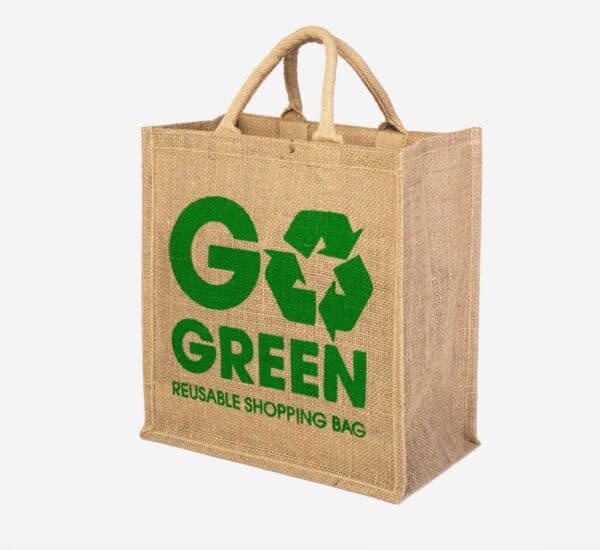How To Be An Eco-Conscious Airbnb Host
In recent years, the travel industry has witnessed a multitude of profound transformations, one of which relates to the health of the planet we traverse. With more and more people around the world developing a heightened awareness of environmental issues, a growing consciousness has given rise to a new breed of travelers – the eco-conscious wanderers. These travelers are not merely tourists; they are impassioned stewards of the environment, seeking sustainable, responsible, and eco-friendly travel experiences.
This monumental surge in eco-conscious travel is fueled in large part by the urgent need to combat climate change, preserve natural habitats, and protect the delicate ecosystems that make our planet so unique and beautiful. Travelers are no longer content with traditional, resource-intensive vacation options; they now actively seek ways to minimize their ecological footprint, opting for eco-friendly transportation, accommodations, and activities – and anyone hoping to host them had better get onboard.
The Role of Airbnb Hosts in Sustainable Tourism
Amidst this transformative shift in travel preferences, Airbnb hosts occupy a pivotal position. As one of the most influential players in the contemporary travel industry, Airbnb has revolutionized the way people experience their destinations; Airbnb hosts, in particular, play a vital role in shaping the sustainable tourism landscape.
Unlike conventional hotels and resorts, Airbnb offers up a diverse range of lodging options for travelers, from cozy apartments in bustling cities, to beachside vibes and remote cabins deep in the beating heart of nature. This level of diversity places Airbnb hosts in a unique position to influence the choices and behaviors of their guests; as hosts, they have the power to champion sustainable practices, educate their guests about local conservation efforts, and showcase the beauty of eco-conscious living, all while making a pretty penny.
Let’s explore what it takes to be an eco-conscious Airbnb host, from energy-efficient home improvements to promoting eco-friendly transportation options for guests. Our goal is to empower hosts with actionable insights, enabling them to play an integral role in the sustainable tourism movement, one guest experience at a time.
Understanding Eco-Conscious Hosting
Eco-conscious hosting refers to the practice of running an Airbnb property with a strong commitment to environmental sustainability and responsible tourism; it involves making conscious choices to minimize the property’s negative impact on the environment and promote eco-friendly practices.
The Importance Of Eco-Consciousness For Airbnb Hosts
Understanding the importance of eco-conscious hosting is crucial for Airbnb hosts in today’s world. Modern travelers are increasingly seeking accommodations that significantly align with their values, and eco-conscious hosting can attract a growing segment of these environmentally-conscious guests when they up their green game. Additionally, being eco-conscious can lead to cost savings, enhance the host’s reputation, and contribute to a healthier planet – not a bad set of returns!
Benefits of Eco-Conscious Hosting
There are several notable benefits to adopting eco-conscious hosting practices:
- Attracting eco-conscious guests: By advertising your property as eco-friendly, you can draw in guests who prioritize sustainability and, in many cases, are willing to pay more for eco-conscious accommodations
- Cost savings: Implementing energy and water-saving measures, as well as waste reduction strategies, can lead to lower utility bills and operational costs
- Enhanced reputation: Eco-conscious hosting can boost your online ratings and reviews, which, in turn, can attract more guests and increase your property’s overall value
- Contributing to a sustainable future: As an eco-conscious host, you play a part in reducing the carbon footprint of the travel industry and promoting responsible tourism, which benefits the environment and future generations of travelers, hosts, and all!
Sustainable Property Management
As an eco-conscious Airbnb host, sustainable property management is at the core of your commitment to environmental responsibility. So, just what are some of the sustainable property management solutions that can help reduce your property’s environmental impact, all while offering a delightful experience for your guests?
Sustainable Property Design and Construction
Going green starts from the ground up:
Eco-friendly Building Materials

Energy-Efficient Appliances and Lighting
 Always opt for energy-efficient appliances and lighting fixtures; high-quality, energy-efficient appliances not only save electricity, but also enhance the overall guest experience. Specifically, LED or CFL lighting can significantly reduce energy consumption while providing excellent illumination.
Always opt for energy-efficient appliances and lighting fixtures; high-quality, energy-efficient appliances not only save electricity, but also enhance the overall guest experience. Specifically, LED or CFL lighting can significantly reduce energy consumption while providing excellent illumination.
Water Conservation
Protect precious resources:
Low-flow Fixtures
Install low-flow fixtures in your bathrooms and kitchens. Low-flow toilets, showerheads, and faucets reduce water consumption without sacrificing guest comfort; your green-centric guests will surely appreciate your efforts to conserve water while enjoying a comfy stay.
Rainwater Harvesting
Also, explore rainwater harvesting systems for outdoor use. Collecting rainwater for irrigation and landscaping can reduce your property’s reliance on municipal water sources and help conserve this precious resource.
Waste Reduction and Recycling
Keep waste to an absolute minimum:
Waste Separation and Recycling Bins
Implement a waste separation and recycling system within your property. Provide clearly labeled bins for guests to separate recyclables from non-recyclable waste, and educate guests about your recycling practices to encourage their participation.
Composting Options
Consider offering composting options for organic waste. Composting is a win-win, as it not only reduces landfill waste but also produces nutrient-rich soil for your garden. Be sure to provide a compost bin and clear instructions on what can be composted.
Energy Efficiency and Conservation
You’ll need to be all over energy efficiency to stand a chance of being taken seriously by the eco-conscious community:
Assessing Energy Consumption
As an eco-conscious Airbnb host, it’s essential to start by assessing your property’s energy consumption; this involves evaluating how much energy your home uses on a regular basis. You can do this by analyzing your utility bills and, hopefully, identifying areas where energy is being wasted.
Implementing Energy-Saving Practices
Once you have a clear understanding of your energy consumption, it’s time to implement energy-saving practices. Here are some strategies:
Smart Thermostats and Energy-Efficient HVAC Systems
Investing in a smart thermostat and upgrading to energy-efficient heating, ventilation, and air conditioning (HVAC) systems can significantly reduce your property’s energy consumption. These technologies allow you to control and optimise temperature settings, thus reducing unnecessary energy usage.
Sealing Drafts And Insulating Properly
A well-insulated, draft-free home retains heat better during the winter and stays cooler in the summer; by sealing drafts and ensuring proper insulation, you’ll reduce the need for constant heating or cooling, thus conserving energy.
Renewable Energy Sources
Consider integrating renewable energy sources into your property to further reduce your carbon footprint:
Solar Panels
Installing solar panels on your property can generate clean, renewable energy from the sun; energy can power your home and even feed excess electricity back into the grid, potentially earning you energy credits.
Wind Turbines
If your property is in a suitable location, wind turbines can be used to harness the power of the wind to generate electricity; while this option may not be feasible for all hosts, it’s worth exploring in areas with consistent wind patterns.
Eco-Friendly Amenities and Services
Eco-Conscious Toiletries And Cleaning Products
Transition to eco-friendly toiletries and cleaning products post-haste. Opt for items that are biodegradable, non-toxic, and come in recyclable or refillable packaging; this ensures a safer and more sustainable experience for your guests.
Local And Organic Welcome Baskets
Create thoughtful welcome baskets filled with locally sourced and organic goodies; this gesture not only supports local businesses, but also promotes sustainable agriculture and reduces the carbon footprint associated with long-distance imports. Other thoughtful extras that focus on sustainability, such as boxed water, all count towards demonstrating your commitment to the cause and to your guest’s comfort.
Promoting Sustainable Transportation Options
Encourage your guests to explore the area in an eco-friendly manner:
Bicycles For Guests
Provide bicycles for your guests to use during their stay; this allows them to explore the surroundings without relying on fossil fuels, and promotes healthy, eco-conscious transportation.
Public Transportation Information
Offer information about local public transportation options; highlight bus routes, subway systems, or commuter trains that can help guests reduce their reliance on private cars during their stay.
Green Cleaning and Maintenance
Non-Toxic Cleaning Products
Ensure that your cleaning routine includes non-toxic and environmentally friendly cleaning products; this not only protects the environment, but also creates a healthier indoor environment for your guests.
Eco-Friendly Landscaping And Gardening
Maintain your property’s outdoor spaces with eco-friendly landscaping practices. Choose native plants, minimize water usage, and avoid chemical pesticides and fertilizers.
Regular Maintenance For Sustainability
Regular maintenance is crucial for preserving eco-friendly features:
Checking For Water Leaks
Regularly inspect your property for water leaks and fix them promptly; this helps conserve water and prevents damage to your home.
Inspecting And Repairing Eco-Friendly Features
If you have implemented eco-friendly features like solar panels or wind turbines, ensure they are regularly inspected and maintained to maximize their efficiency and lifespan.
Waste Reduction and Recycling
Setting Up A Comprehensive Recycling System
Establish a comprehensive recycling system in your home; provide clearly labeled recycling bins and educate your guests about what can be recycled.
Reducing Single-Use Plastics
Take steps to reduce the use of single-use plastics in your property by replacing disposable items with reusable alternatives, such as water bottles, utensils, and shopping bags.
Encouraging Guests To Minimize Waste
Promote waste reduction among your guests:
 Providing Reusable Shopping Bags
Providing Reusable Shopping Bags
Offer reusable shopping bags to guests, encouraging them to use them instead of plastic bags when shopping locally.
Offering Information On Local Recycling Centers
Provide information about local recycling centers and encourage guests to drop off recyclables before they head off for their next adventure.
Educating Guests
Providing Eco-Conscious Guidelines
Offer guidelines to your guests on how to be eco-conscious during their stay; you can include tips on conserving water and energy, as well as proper recycling and waste disposal practices.
Highlighting The Environmental Impact Of Their Choices
Educate guests about the environmental impact of their choices; explain how their decisions can contribute to a more sustainable and eco-friendly world.
Encouraging Responsible Behavior
Encourage responsible behavior by setting an example and fostering a culture of environmental stewardship among your guests:
Water And Energy Conservation
Ask guests to be mindful of water and energy consumption by turning off lights, appliances, and faucets when not in use.
Recycling And Waste Reduction
Emphasize the importance of proper recycling and waste reduction practices and provide incentives for guests who participate in eco-conscious activities.
Community Engagement
Supporting Local Sustainability Initiatives
Engage with and support local sustainability initiatives and organizations. Ideas include participation in community clean-up events or sponsoring eco-friendly projects that benefit the local environment.
Collaborating With Eco-Conscious Businesses
Partner with local eco-conscious businesses to provide discounts or special offers to your guests; this not only promotes sustainable practices but also supports the local economy.
Hosting Eco-Friendly Events And Workshops
Consider hosting eco-friendly events or workshops for your guests and the local community; events like these can educate and inspire others to adopt more sustainable lifestyles.
Measuring and Celebrating Success
Tracking Environmental Impact And Improvements
Regularly measure and track the environmental impact of your eco-conscious efforts, by monitoring energy savings, waste reduction, and other eco-friendly metrics.
Recognizing Eco-Conscious Achievements
Celebrate your eco-conscious achievements and milestones! Acknowledge the positive changes you’ve made and the impact you’ve had on the environment.
Sharing Success Stories With Guests And The Community
Share your success stories with your guests and the local community, inspiring others to follow your lead as you demonstrate the benefits of being an eco-conscious Airbnb host.
Green Rewards Aplenty
As we reflect upon the evolving landscape of travel and hospitality, it becomes evident that being an eco-conscious Airbnb host is no longer a choice but a responsibility. In a world increasingly aware of environmental challenges, Airbnb hosts have a unique opportunity to shape the future of sustainable tourism.
The importance of eco-conscious hosting goes beyond attracting environmentally conscious travellers, although it undoubtedly does that; it extends to cost savings, enhanced reputation, and most importantly, contributing to a healthier planet.